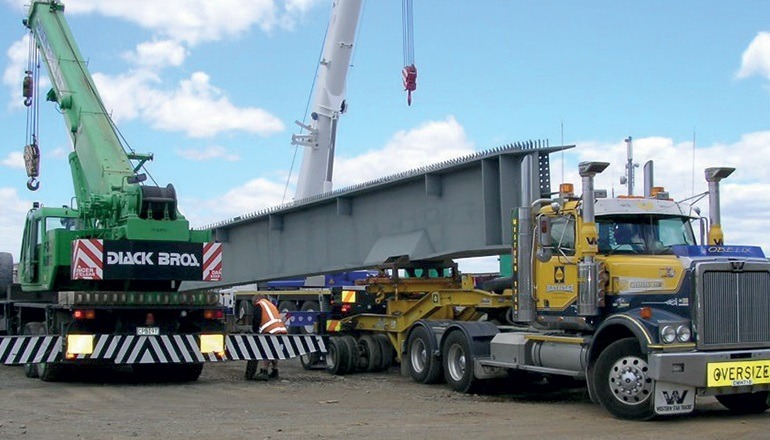JONATHAN BHANA-THOMSON, CHIEF EXECUTIVE, NZ HEAVY HAULAGE ASSOCIATION

THE POSITION OF an industry association can be a difficult one. First and foremost you are representing the collective needs of your industry sector with various national and local government authorities, as well – as in our case – the owners of various infrastructure that include, for example, overhead line networks.
Meanwhile the industry association is also taking what government and asset owners are saying and translating it into language that can be understood quickly and efficiently by operators out there running a business, trying to comply with all the requirements, and hopefully making a buck so that they are still there this time next year.
I’ve often thought that after an Association has been around for 50 years (as we have) and after being 15 years with the Association, that there should be no more problems for me to solve – they should have been all sorted by now.
The fly in the ointment is the ever-changing regulatory and safety environment that is constantly evolving and being pushed to ever greater compliance requirements.
Willing compliance
 In my view the haulage regulatory environment simply has to have rules and procedures that encourage compliance. To do anything else will mean that users that have to work within these systems will lose faith in them, see the compliance burden as too high, and opt not to engage with them. This is not to say that operators will not undertake completely unsafe actions, but will rather comply with the aspects of practices that make them safe enough without jumping through unnecessary hoops.
In my view the haulage regulatory environment simply has to have rules and procedures that encourage compliance. To do anything else will mean that users that have to work within these systems will lose faith in them, see the compliance burden as too high, and opt not to engage with them. This is not to say that operators will not undertake completely unsafe actions, but will rather comply with the aspects of practices that make them safe enough without jumping through unnecessary hoops.
I am not saying that I condone the actions of any person who actively operates outside the expected requirements – I encourage every member of my Association to do so. But sometimes a regulatory authority has a brain explosion and implements a regime that it becomes difficult or even impossible to comply with.
Take a current example where an infrastructure owner that issues approvals for travel for many operators within the heavy haulage and house relocation sector has just implemented a lead notification time that is simply extreme, and with no ability to vary the date of travel that has to be nominated some four weeks out. In the real world this simply will not work.
In my view, this infrastructure owner has implemented a regime that suits entirely their purposes and has no regard to the actual users that try to operate within their system. To do so simply discourages willing compliance and instead pushes operators to use natural human inventiveness to try a different way.
This results in combative situations, which can only lead to potentially more risky outcomes, which is not the direction where things should be heading.
Conversations rule
To achieve a better outcome the alternative method is simple dialogue with users. Frankly I think that regulators sometimes get so tied up with looking after their own interests that they forget that there are real people out there who have to try to comply with their new wonderful and ultimately wacky systems. The answer is dialogue with those people who will have to comply and work within these processes, so that when a new regime starts they are already half way there by having users that understand and accept them.
This applies to all sorts of situations, be it the traffic management plans put in place to control traffic around worksites (as I discussed in my last column), permit and approval regimes put in by asset and infrastructure owners, or the legal requirements set by central government.
In my time with this Association, there have been occasional glimpses where the dialogue with users flickers into life as part of the developmental process, but this is not generally the case. I would strongly encourage all authorities, no matter the type, to please consider the plight of the users of their systems right up front. Too often the scope of projects does not consider this as a critical step and this is to the ultimate detriment of the outcome.
So the take-home message is to step up and talk early and often.


Consideration of oversize load movers